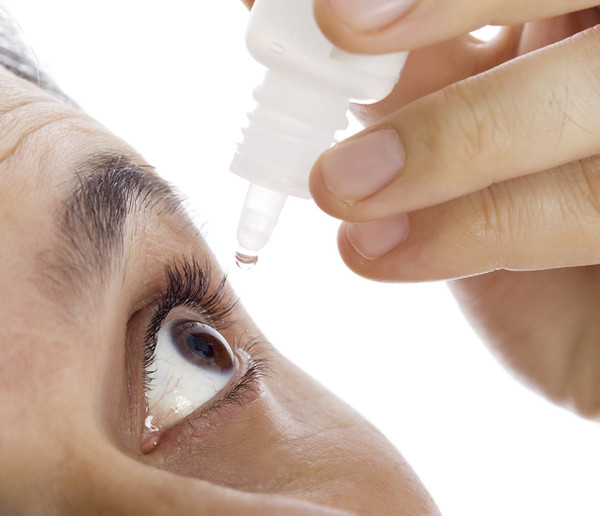[Jeong Jae-hoon's Column on Food & Drug]
Sometimes medications can cause dry eyes. This uncomfortable condition, known as dry eye syndrome, occurs due to insufficient tear production or a problem with the composition of the tears, even if they are in sufficient quantity. It can be distressing because it causes stiffness, foreign body sensation, light sensitivity, dryness, and eye strain. Medications can reduce the amount of tears produced or affect the composition of the tears.

Isotretinoin, a medication used for severe acne, reduces sebum production but also interferes with the secretion of oil from the meibomian glands. When these glands don't produce oil properly, tears dry up easily, and dry eyes become more severe. Just as water alone is not enough to moisturize dry hands—you need a moisturizer with enough oil to keep your skin hydrated—your tear film needs a layer of oil to keep your eyes soft. If you're taking isotretinoin-based acne medications, using artificial tears during the day, eye drops, or eye ointment at bedtime can help reduce this side effect.
Cold and allergy rhinitis medications can also worsen dry eyes. The antihistamines in these medicines reduce mucus production. While reduced tearing and a runny nose can help relieve the symptoms of rhinitis or a cold, excessive reduction can be an adverse effect. Decongestants that reduce nasal congestion also have the side effect of reducing tear production. When the blood vessels in the mucous membranes of the nose constrict, less mucus is produced, and nasal congestion is reduced.
However, the same principle also results in fewer tears. In addition to pills, nasal sprays also contain decongestants. These medicines don't just stay in the nose; they also travel to the eye area and even cross the blood-brain barrier. This is why some people experience dry eyes or headaches after using a rhinitis spray. Medications for rhinitis and colds are meant to reduce discomfort, not treat the cause, so it's best to limit their use, employing them only when necessary. Eye drops can also cause dry eyes because the different ingredients, such as anti-inflammatories and vasoconstrictors, can affect the amount and composition of tears.
Many other medications are associated with dry eyes. Blood pressure medications, anti-inflammatory drugs, opiate painkillers, antidepressants, anticancer drugs, tranquilizers, and birth control pills can make your eyes drier. However, there are a few things to remember. First, not all blood pressure medications are the same. Some, like beta-blockers, can worsen dry eyes, while ARBs, which are much more commonly used in Korea, rarely have this side effect. Additionally, dry eyes are not a side effect for everyone but they affect some people. If you suspect a side effect, you should consult your doctor or pharmacist.

Jeong Jae-hoon is a food writer and pharmacist. He covers a variety of subjects, including trends in food, wellness and medications. This column was originally published in Korean in Joongang Ilbo on May 23, 2024. – Ed.
Related articles
- [Column] Exercise lowers the risk of anxiety
- [Column] Why you should take fewer pills
- [Column] Does the apple cider vinegar diet work?
- [Column] Why eating microplastics is harmful
- [Column] The truth about breakfast choices
- [Column] Why it's better to buy twigim instead of cooking it at home
- [Column] Foods that are really bad for your stomach
- [Column] When is the best time to drink coffee in the morning?
- [Column] A well-balanced diet matters, not a single food
- [Column] How to beat the heat wave
- [Column] The best ways to enjoy summer watermelon
- [Column] Why you shouldn't overeat on a hot day
- [Column] Olive oil and dementia mortality risk

